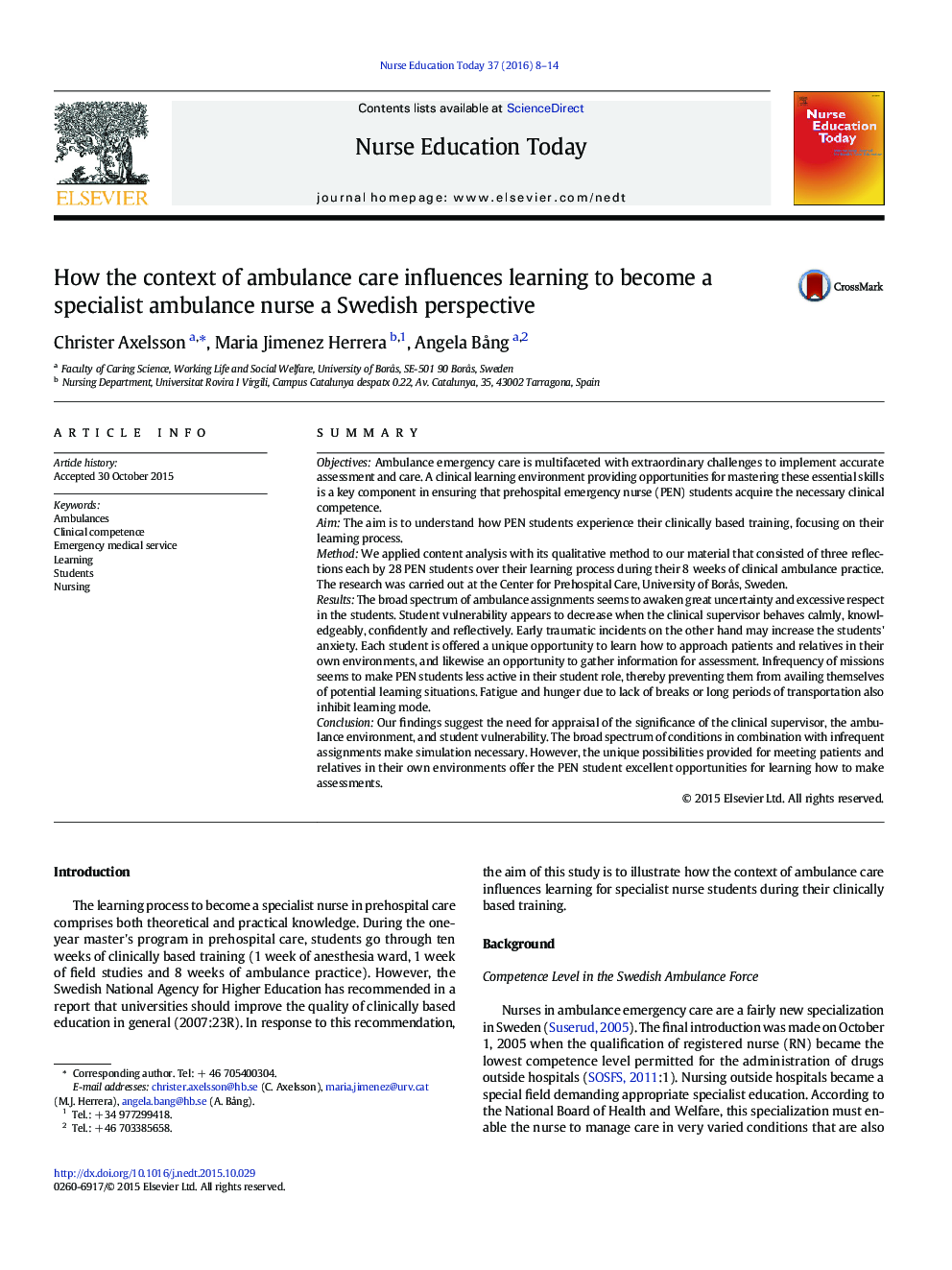| Article ID | Journal | Published Year | Pages | File Type |
|---|---|---|---|---|
| 367994 | Nurse Education Today | 2016 | 7 Pages |
•This study investigates the conditions for learning among 28 Prehospital emergency nurse ( PEN) students.•Ambulance assignments deal with every possible medical and psychosocial problem in an uncontrolled environment.•Students seems to be positively affected by a calm, knowledgeable, confident and reflective attitude of the clinical supervisor.•Infrequency of missions inactivates the learning mode.
SummaryObjectivesAmbulance emergency care is multifaceted with extraordinary challenges to implement accurate assessment and care. A clinical learning environment providing opportunities for mastering these essential skills is a key component in ensuring that prehospital emergency nurse (PEN) students acquire the necessary clinical competence.AimThe aim is to understand how PEN students experience their clinically based training, focusing on their learning process.MethodWe applied content analysis with its qualitative method to our material that consisted of three reflections each by 28 PEN students over their learning process during their 8 weeks of clinical ambulance practice. The research was carried out at the Center for Prehospital Care, University of Borås, Sweden.ResultsThe broad spectrum of ambulance assignments seems to awaken great uncertainty and excessive respect in the students. Student vulnerability appears to decrease when the clinical supervisor behaves calmly, knowledgeably, confidently and reflectively. Early traumatic incidents on the other hand may increase the students' anxiety. Each student is offered a unique opportunity to learn how to approach patients and relatives in their own environments, and likewise an opportunity to gather information for assessment. Infrequency of missions seems to make PEN students less active in their student role, thereby preventing them from availing themselves of potential learning situations. Fatigue and hunger due to lack of breaks or long periods of transportation also inhibit learning mode.ConclusionOur findings suggest the need for appraisal of the significance of the clinical supervisor, the ambulance environment, and student vulnerability. The broad spectrum of conditions in combination with infrequent assignments make simulation necessary. However, the unique possibilities provided for meeting patients and relatives in their own environments offer the PEN student excellent opportunities for learning how to make assessments.
